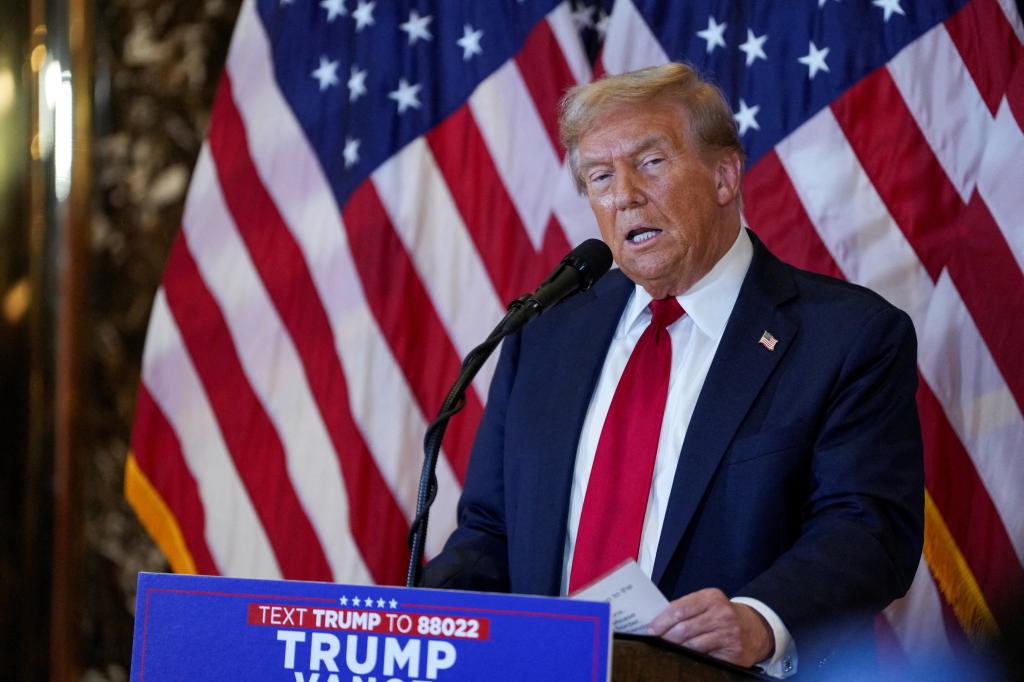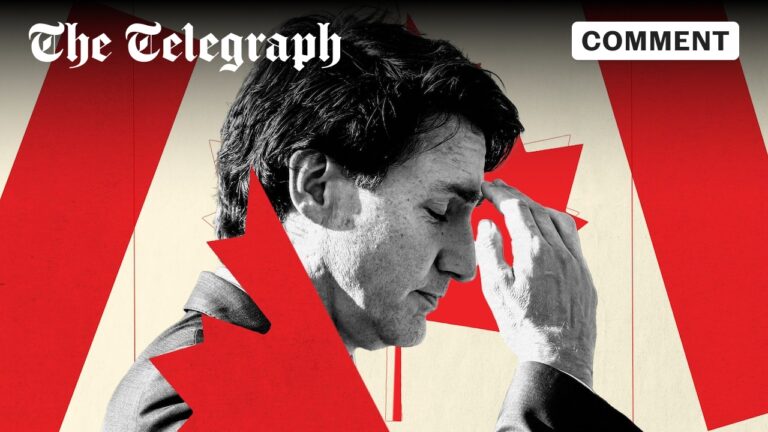Trump Plans Major Overhaul of ‘Woke’ Bureaucracy if Re-elected
Navigating Trump’s Vision: A Potential Overhaul of the ‘Woke’ Bureaucracy
With the 2024 elections heating up, one name that’s making waves, as usual, is Donald Trump. If he secures another term in the Oval Office, you might want to brace yourself for a significant shake-up in what he’s dubbed the “woke bureaucracy.” This bold plan has already set political tongues wagging, raising questions about its implications on governance, society, and even the economy. So, what exactly does this mean? Let’s dig into the details.
What Does Trump Mean by ‘Woke’ Bureaucracy?
To truly understand what’s at stake, we first need to unpack the term “woke bureaucracy.” In some circles, “woke” is a badge of honor representing awareness of social injustices and advocacy for change. In others, it’s a derogatory term aimed at highlighting what some perceive as excessive political correctness.
The ‘Woke’ Agenda: A Double-Edged Sword
It’s essential to recognize that the term can be highly polarizing. For some, it signifies striving for equality and inclusivity. For others, it suggests an overreach of ideologies that complicate governance and public policy. Trump’s plan speaks to those who believe that such ideologies have infiltrated public institutions, hindering their effectiveness.
- Are policies based on ‘woke’ ideals really improving lives or merely creating division?
- Could this agenda cost taxpayers extra money?
These are the types of questions that Trump aims to address if re-elected.
What Could Happen if Trump Turns His Plans Into Action?
Should Trump land another term, we can expect various strategic changes, especially within federal agencies. His intent is clear: re-evaluate the policies and personnel that often embody progressive values. Let’s break down a couple of key areas where these changes might take root.
A Shift in Federal Hiring Practices
One of the most significant aspects of Trump’s overhaul may likely focus on hiring practices within the federal government.
- Current Scenario: Many federal positions require candidates to undergo diversity training or demonstrate commitment to understanding systemic prejudice.
- Trump’s Vision: A potential shift towards hiring based solely on merit and qualifications—without forced ideological training—could be on the table.
This change could potentially usher in a new era of accountability and performance-focused governance. That said, the ramifications might lead to debates about equity versus equality in hiring practices.
Budget Reallocations: Chopping the ‘Woke’ Budget
Another intriguing aspect of Trump’s plans could involve budget cuts. Trump has hinted at slashing funding directed toward programs he deems “woke.” Some of these may include:
- Diversity and Inclusion Initiatives
- Anti-Racism Training Programs
- Environmental Justice Programs
These cuts could severely shift the focus of federal agencies, realigning them from social justice objectives toward a more traditional bureaucratic role focused on existing protocols and responsibilities.
Regulatory Revisions
If Trump sticks to his guns, we might also see revisions to regulatory frameworks that currently enforce social justice practices. Agencies like the Environmental Protection Agency (EPA) may move away from progressive ideologies in lieu of more traditional policies that prioritize economic growth and industry autonomy.
- Can businesses thrive if they’re hindered by strict social justice regulations?
- Is this the path to prosperity or merely a tick in an authoritarian box?
These are definitely not just rhetorical questions; they could shape the future discourse of the nation.
The Potential Backlash: Who’s Going to Object?
Of course, whenever shifts like this are proposed, there’s bound to be kickback. Progressive lawmakers, activists, and many citizens feel passionately about ensuring equality and fairness in governmental policies. By dismantling ‘woke’ initiatives, Trump is likely to ignite a firestorm of criticism.
Who’s at the Forefront?
- Activists: Grassroots organizations advocating for social justice will likely amplify their efforts to resist these changes.
- Academics and Experts: Many in academic circles and think tanks may raise concerns about the socio-economic implications of “rolling back” progress.
The conversation will be intense and charged.
What Does This Mean for Everyday Americans?
So, why should you—whether you’re a Democrat, a Republican, or somewhere in between—care about these bureaucratic shifts? Because policy impacts real lives.
Implications for the Average Joe
- Job Opportunities: Could moving back to merit-based hiring open more doors for a broader base of qualified individuals?
- Social Cohesion: Would cutting funding for diversity initiatives create more polarization or pave the way for honest dialogue?
The truth is, it’s a mixed bag dependent on where you stand on these issues.
Economic Consequences
Inherent in these bureaucratic shifts is the potential impact on the economy. As regulations ease, businesses could see growth, resulting in more job opportunities and potentially higher wages. However, it might also come at the cost of increased social inequity.
Conclusion
It’s evident that if Trump does return to the White House, the ramifications of his plan to dismantle the “woke bureaucracy” will echo through both political and social spheres. This issue isn’t just about red or blue; it’s about the fundamental principles that shape our society. It raises questions about the balance between equity and merit, government responsibilities, and what the future of American values might look like.
Love him or hate him, it’s hard to ignore that Trump is stirring the pot, and we’re all invited to his feast of ideas—whether we want to be or not.
FAQs
1. What specific changes does Trump plan to make to the federal hiring process?
Trump aims to shift focus back to hiring based on qualifications rather than diversity initiatives.
2. How might budget cuts affect social justice programs?
Cuts could significantly reduce funding for diversity training, anti-racism programs, and other initiatives focused on social equity.
3. What are the potential benefits of Trump’s proposed changes?
Proponents argue this could streamline operations, enhance efficiency, and promote a merit-based system.
4. Will Trump’s plans have bipartisan support?
Given the divisiveness of the ‘woke’ debate, it’s unlikely that his plans will rally support from both parties.
5. How will these changes affect everyday citizens?
The implications will vary; some may see improved job opportunities, while others may experience increased social tensions as funding for equity initiatives is cut.







